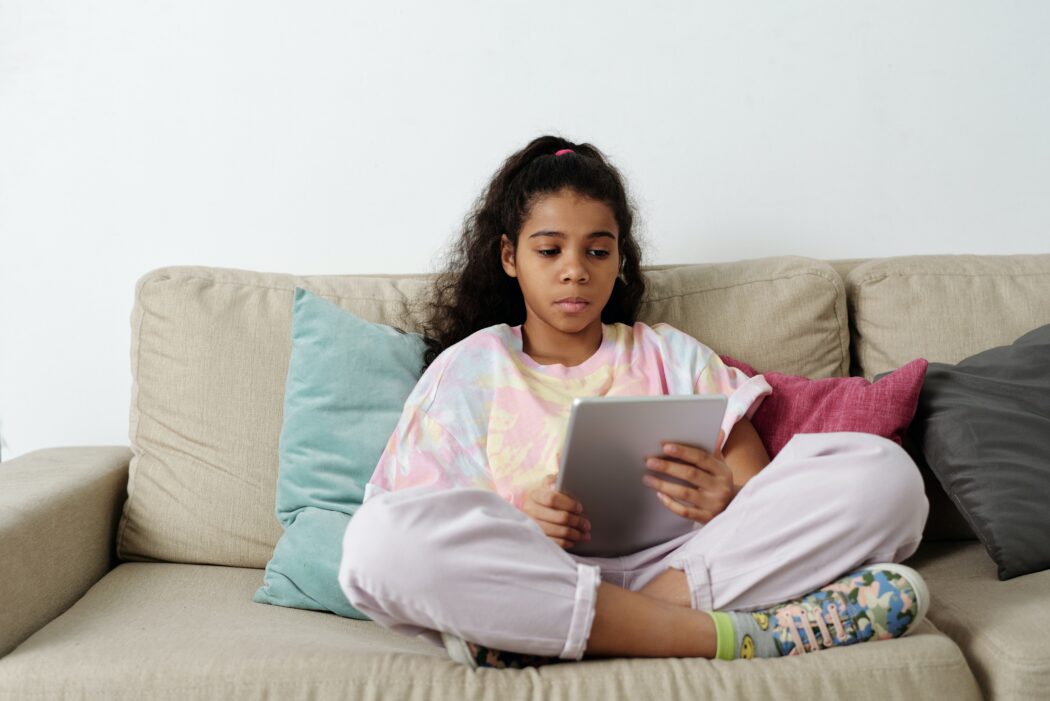In a world dominated by technology, it is inevitable that children will interact with and become a part of the digital space. Whilst there is a plethora of safety issues that accompany online interaction, employing education over censure communicates the benefits of technology and enhances children’s digital literacy.
When it comes to digital security, it is vital that we ensure children are educated so that they may interact with the online world in a safe way. Equipped with the right information, parents can take responsibility for their child’s safety and encourage digital well-being.
Daniel Bowen, Technology Strategist in the Education Department at Microsoft, provides us with the skills we need to keep children safe online.
From his time working for the Child Exploitation and Online Protection Centre in the UK and with the Australian Federal Police on their ThinkUKnow programme, Daniel shares professional insight and valuable tips for parents.

According to research conducted by the Australian Institute of Family Studies in 2015, most Australian children spend more than two hours a day behind screens.
Between the ages of 12 and 13, kids average more than three hours of screen time per weekday, meaning that 30% of their time awake is spent using technology.
With these figures only increasing, children’s exposure to the online world, whether it be through phones, laptops, iPads, or other devices, is inevitable and fast-growing.

The most prominent digital safety concerns are often placed in the background, with darker apprehensions such as grooming at the forefront of parents’ minds.
Whilst the seriousness of these issues needs to be acknowledged, Dan highlights that they are not as frequent as other digital safety problems.
He places an emphasis on cyberbullying, video and image sharing, identity theft and financial fraud.
It is inevitable that children are exposed to technology, whether it be at school, with their friends or in their home environment.
Jocelyn Brewer, registered psychologist and founder of Digital Nutrition, has created an organisation dedicated to guiding people towards healthy technology habits.
Dan is supportive of Brewer’s efforts, describing it as, “a healthier angle to talk about digital safety. We must remain positive as technology becomes an integral part of our children’s lives.”
From his own personal experience as a dad of three, Dan shares his go-to when it comes to keeping his kids safe online:
“I have always believed in open communications over censure. I do monitor my kid’s devices; their PC’s and XBOX’s are connected to Microsoft Family Safety so I can see their online behaviour and receive weekly emails that aggregate their game time, internet use, and applications used on their laptops.
“I also have parental controls set on their Apple iPhones an iPads so have control of that ecosystem too. Things are not limited too much but offer me information so I can have conversations about their usage and heathy habits.
“I present a lot to school parents and use the resources heavily. You can even request a session for free at your local school on their site run by the AFP and industry representatives.”

Be open with children and have regular conversations with them about safety.
When approaching children about digital safety, it is important to consider different methods of communication based on their age bracket.
4–7-year-old
Talk about friendships and explore technology together. Ensure parental controls are set. Supervise your child while they are online.
Be non-judgemental and explain that you would never blame them for anything that might happen online. Initiate conversations about online safety and what bothers them, what makes them worried or scared. Make sure they can talk to adults who they trust.
8–10-year-olds
Begin to talk about privacy and keeping information private online. Express the importance of not sharing photos and personal information online.
Talk to them about the apps they are using such as TikTok and Roblox and issues surrounding connecting with friends on XBOX and PlayStation. Be knowledgeable about their activity by checking their usage and apps. Ensure parental controls are set.
11–13-year-old
At this stage children will start to lock devices and not let you see the content and messages. Make sure parental controls are set and be firm about the usage of the devices.
Start communicate about identity theft and maintaining strong online security such as passwords, online connections and friendships. Children are vulnerable at this age as they think they know more about the apps and technology they are using but remember you are the parent.
14 and older
Focus on online digital footprints. Communicate key issues that arise around this age group such as livestreaming, gaming, pornography, online sexual abuse (webcam and images), sexual grooming and online dating. Remember to always ensure your children have a trusted adult who they are comfortable talking with. Communication is the key.
If things go wrong or there are any issues, your children need to know it is safe to talk to you.
Top digital safety tips for parents
Education over Censure
Be open with children and have regular conversations with them about safety. Kids have a knack of evading restrictions which can often lead to them being exposed to things they shouldn’t have access to at certain ages.
Treat technology with equal importance to other safety issues; educate kids about the multiplicity of dangers, from malware and viruses to online contact and sharing personal information.
Supervision and Parental Controls
If possible, always set up your child’s device for them. Do not leave this responsibility to them. This will allow you to manage payments, enable screen time limits and restrict their online behaviour across Windows, XBOX, PlayStation and mobile devices.
Information on ways to secure the following technology:
- Microsoft Products: Microsoft Family Safety for Online Safety & Digital Health
- Sony PlayStation: How to set parental controls on PlayStation 5 consoles
- Apple Products: Use parental controls on your child’s iPhone, iPad and iPod touch – Apple Support (AU)
Learn to use and secure your home network
The Wi-Fi router in your home is your friend. Change the admin password so that it is secure.
This is a great way of managing the time your kids spend on their devices; not many people know that the Wi-Fi allows you to lock out devices from the internet.
Be open and approachable if your child needs help
If things go wrong or there are any issues, your children need to know it is safe to talk to you. When kids become targets of online grooming, for example, they may feel as though they cannot tell anyone, and the result can be catastrophic.



